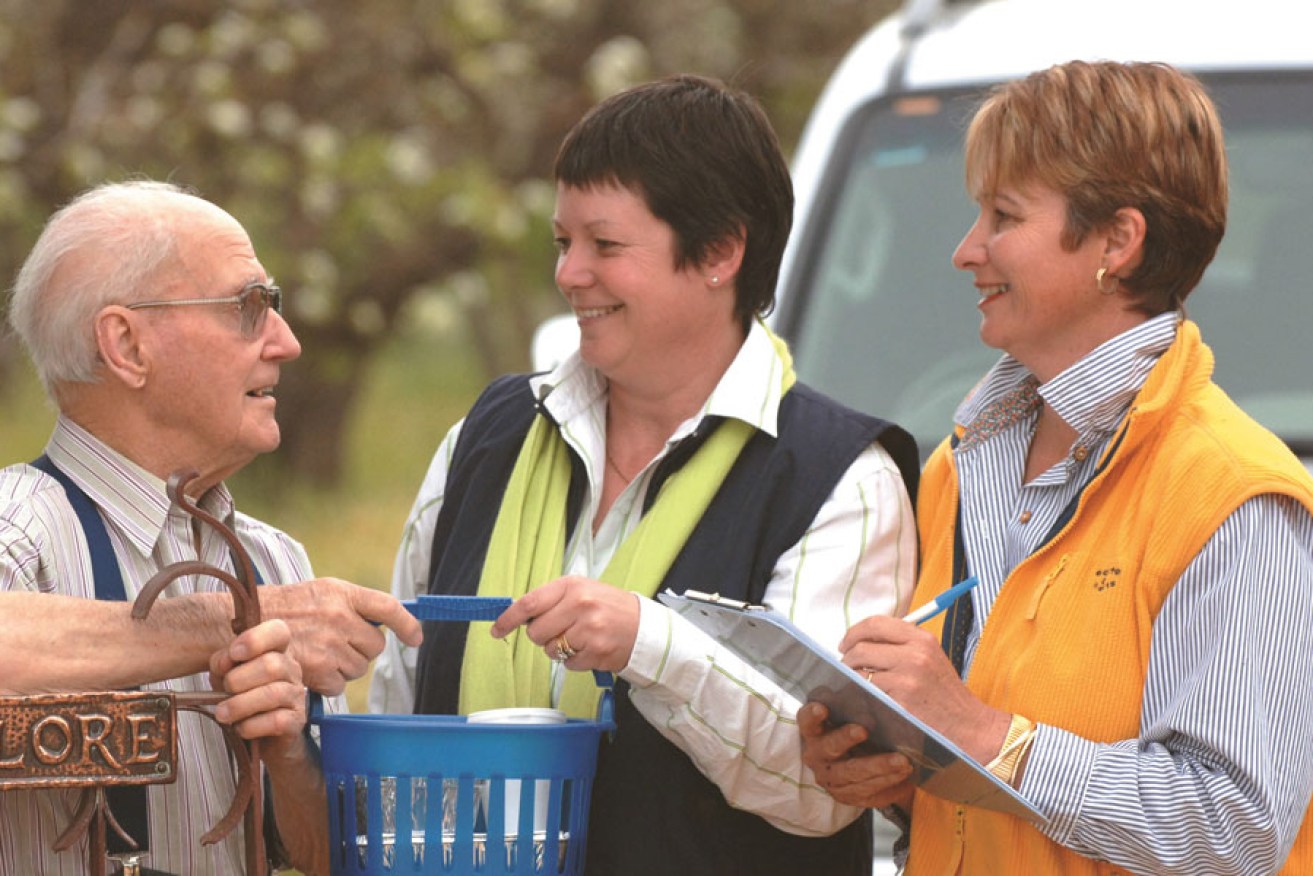“Sharing” revolution for Meals on Wheels

South Australian Meals on Wheels volunteers exchanging a meal and chat with a rural client.
Group lunches and community dining rooms will be trialled next year through a state-wide partnership to reduce poor nutrition among the elderly.
“Test Kitchen” is the brainchild of a University of South Australia researcher, supported by Meals on Wheels SA, and focuses on using social interaction to make mealtimes more meaningful and enjoyable.
UniSA’s Matt Haren said there were many reasons why elderly people were at risk of under nutrition including disengagement, reduced appetite and limited physical capabilities.
But his experience and research suggests overcoming many of these barriers could be as simple as dining with friends.
“Food is intimately part of how we socialise in society,” Haren said.
“It’s all about achieving the maximal wellbeing for a person. Not everybody is a ‘foodie’. But I think almost everybody is into having a good social connection and good social relationships.”
The program will add to existing Meals on Wheels services, initially in rural South Australia, by creating two potential social settings for clients:
- Host@Home model that brings together three or four individual deliveries into a single, privately hosted lunch in the home of a willing customer supported by volunteers and;
- Pop-up community dining rooms where appropriately designed public spaces could accommodate small groups of clients to be hosted by volunteers.
In its submission to the Senate Select Committee on Health, Meals on Wheels Australia said research had shown up to 43 per cent of elderly people were at risk of malnutrition.
Further, a pilot study conducted in South Australia and published in the Australasian Journal on Ageing found that under-nourished individuals who received Meals on Wheels had better health outcomes after 12 months than those who did not receive the service. Notably, they were less likely to be admitted and spend fewer days in hospital and there was a trend towards having fewer falls.
Haren said the new program would begin with existing Meals on Wheels clients to enhance the service already provided by volunteers.
“Those brief social interactions with the volunteers are really important, the customer values it,” he said.
“I want to know how much more can we achieve if we’re bringing people together to eat, making those interactions last longer over the course of a meal and hopefully increase the amount that they are eating.”
Then they will target new clients, reaching out to people who are particularly socially isolated or those who did not consider needing Meals on Wheels but also don’t feel confident enough to host social occasions.
“It provides an opportunity to people where they can be supported, to improve their general well being and outlook on life and translate it into a happier life and hopefully a longer life, but at least a more functional life,” Haren said.
Test Kitchen is one of three winners of The Australian Centre for Social Innovation awards for innovation in ageing. The prizes, announced by Minister for Ageing Zoe Bettison, include funds and mentoring to establish and launch the prototype.
Meals on Wheels SA acting general manager Julie Bonnici said the program matched the values of the service well and would really add to the “meal experience”.
“There’s a lot of research that elderly people experience a loss of appetite or their desire to eat decreases,” Bonnici said.
“(We hope) it entices these people to eat more when they eat with company, rather than sitting on their own and eating because they need to.
“If you create that social context it makes meals more of a fun, enjoyable experience.”
The trial will begin in Port Augusta next year with work in the field around mid-year.
Other winners of the TACSI Innovation in Ageing awards are Seniorpreneurs a professional networking organisation for over 55s and Boomers Power the Community that encourages baby boomers to volunteer locally.




